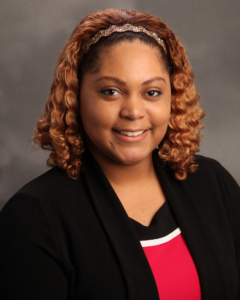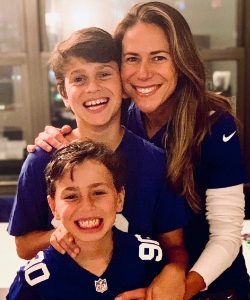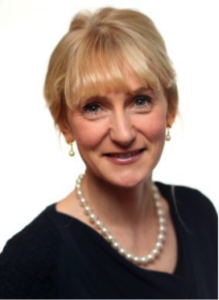 “I’ve learned a lot of strategies about productivity during this working-from-home time due to COVID-19,” says Veronica Willis. “I’ve also learned a lot about what really is high and low priority, so now I know what to focus on and I will take this back to the office with me.”
“I’ve learned a lot of strategies about productivity during this working-from-home time due to COVID-19,” says Veronica Willis. “I’ve also learned a lot about what really is high and low priority, so now I know what to focus on and I will take this back to the office with me.”
Wells Fargo’s Willis discusses a career shift into investment strategy, finding her own stride as a leader, and what the remote working environment has taught her so far.
Moving Toward Investment Analysis
A Chicago native, Willis graduated from Washington University in St. Louis, majoring in mathematics with a concentration in statistics and a second major in Spanish language and literature.
After joining Wells Fargo in 2012, she put her quantitative prowess into application in researching and running quantitative models for developed and emerging countries, commodities and currencies.
From working in heavy quantitative analysis, she began to investigate the strategic side and felt herself pulled in that direction.
“I realized the writing side was interesting to me,” says Willis. “I began to explore the research and strategy side, especially around commodities. And while the quantitative work still mattered, I found my interests were going in a different direction.”
In 2015, she began to move into research and recommendations around asset allocation with the head of asset allocation, bringing strategic market insight into advising investors on how to minimize risk and maximize success, in alignment with their investment goals.
Currently she is part of Wells Fargo Investment Institute, focusing on clients of Wells Fargo’s Wealth & Investment Management division —where much like bridging the rich diversity of her two university majors, she combines an aptitude for quantitative and qualitative insight.
Becoming a Leader
Willis is proud of the new tax efficient asset allocation models that launched on December 1, a project she worked on throughout this year and for which she took the lead.
“It’s been a great opportunity to show my leadership abilities,” reflects Willis. “It’s really amazing we were able to get this completed in this complicated year.”
As she takes on new leadership opportunities and challenges, Willis is coming into stride with the gear-shift that rising to leadership asks of her.
“As a leader, I’m excited to learn how to take the lead in projects, how to manage peers and take ownership,” she says. “That can be a fine balance if you move from working with people as peers to then being in charge of a project. I struggled a little with the shift at first.”
However as she ventured into this territory, Willis quickly gleaned?? that real leadership is never a one-size-fits all approach, but a matter of listening and attentiveness.
“I think the key is to figure out how people want to be managed, style-wise,” says Willis. “Some people want autonomy and to be left alone. Some people want a lot of check-ins. As a leader, you need to meet them in the style that is best for them.”
Willis is now enjoying expanding her experience in people management.
“I want to be a leader who develops people on the team,” she says, “I want to guide them in their careers, especially now in this remote work environment, as teams are geo-diverse, and there’s just not the opportunity to catch up in the office as there once was.”
Attuning the Work-Life Balance
Willis finds that the remote workplace has prompted her to increase mastery of her time management and prioritization skills.
“I’ve learned time management working from home,” says Willis, who produced a massive amount of intensive research during the volatility in the spring. “I used to pull long days and check emails outside of the office constantly. I realized when I was working from home that I had to draw some boundaries and stop at a certain time.”
Stepping away from the office, Willis has found it easier to curtail the 24/7 availability habits and instead create a better work-life balance.
“It’s very easy to stay logged in, checking and replying to emails, long after the work day has finished,” says Willis. “I’ve learned it’s okay to turn off the work phone, and I plan to continue to have the off-time delineation when we go back to the office.”
Mentoring and Supporting Others
During the first year of her career with Wells Fargo, Willis had a formal sponsor who advocated for her and still does to this day.
Willis has found that mentorship is very valuable in building up her transferable skills, and she wishes to pass that support onto others.
“My mentor helped me find my voice to help others and build my skills,” she says. “I mentor people who are now going through the same program that I myself started my career in.”
Outside of work, Willis also serves on a young professional board at the Saint Louis Crisis Nursery, focused on stopping abuse and neglect of children. She supports the organization in creating a safe space for kids to come and providing help-line support for overwhelmed parents in need.
Be Willing to Discern and Expand
If she could say anything to her younger self, it would be to practice discernment and own your ‘no’s’ as much as your ‘yes’s’ in alignment with valuing your time and professional goals.
“It’s okay to say no to some requests,” she reflects. “I was always saying ‘yes’ early in my career, and I would tell my younger self to be more selective, especially if you’re trying to build a specific skill-set.”
Her advice to others is not to let your past interests or roles define the latitude of your future possibilities.
“Don’t necessarily box yourself in — you don’t have to be what you studied in college. You can explore new things that interest you and that you have passion around,” Willis encourages. “It’s okay to build those skill, and then it’s okay to follow your passions and grow.”
Risks
All investing involves risks including the possible loss of principal.
Disclosures
Wells Fargo Investment Institute, Inc., is a registered investment adviser and wholly-owned subsidiary of Wells Fargo Bank, N.A., a bank affiliate of Wells Fargo & Company.
The information in this report is for general information purposes only and is not intended to predict or guarantee the future performance of any individual security, market sector or the markets generally.
The information contained herein constitutes general information and is not directed to, designed for, or individually tailored to, any particular investor or potential investor. This report is not intended to be a client-specific suitability or best interest analysis or recommendation, an offer to participate in any investment, or a recommendation to buy, hold or sell securities. Do not use this report as the sole basis for investment decisions. Do not select an asset class or investment product based on performance alone. Consider all relevant information, including your existing portfolio, investment objectives, risk tolerance, liquidity needs and investment time horizon.
Wells Fargo Wealth and Investment Management, a division within the Wells Fargo & Company enterprise, provides financial products and services through bank and brokerage affiliates of Wells Fargo & Company. Brokerage products and services offered through Wells Fargo Clearing Services, LLC, a registered broker-dealer and non-bank affiliate of Wells Fargo & Company. Bank products are offered through Wells Fargo Bank, N.A.






